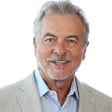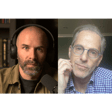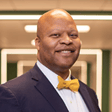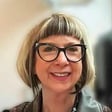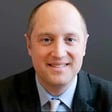
Episode 1 - An Interview with Kathleen Rogers, President of EarthDay.org
Please visit: https://earthday.org
About Kathleen Rogers
Kathleen Rogers is the President of Earth Day Network. Under her leadership, EARTHDAY.ORG has grown into a global year-round policy and activist organization with an international professional staff.
Kathleen has been at the vanguard of developing campaigns and programs focused on diversifying the environmental movement. In 2002, she spearheaded the creation of Campaign for Communities (C4C). C4C is a coalition of African American and Latino partner organizations focused on voter registration and voter mobilization, which also works year-round on environmental issues in low income communities. Kathleen also helped create innovative financial mechanisms to “green” low income schools and communities. She created the National Civic Education campaign, which works with K-12 schools on projects that solve local environmental issues while teaching civic skills.
Kathleen also founded Earth Day Network’s groundbreaking Billion Acts of Green program, which has now recorded close to 3 billion individual actions to improve the environment. She is a frequent commentator on environmental issues in the media and has appeared on CNN, Fox News, and NPR, as well as in Time Magazine, The Washington Post, the New York Times, and The Los Angeles Times and many other international and national newspapers and journals.
Prior to her work at Earth Day Network, Kathleen held senior positions with the National Audubon Society, the Environmental Law Institute, and two U.S. Olympic Organizing Committees. As Chief Wildlife Counsel for the National Audubon Society, she oversaw international trade, migratory species, and biodiversity programs, and was responsible for bringing the first citizen complaint before the Commission for Environmental Cooperation, the tri-national agency created to oversee North American environmental issues. She also worked for the BBC and other television networks. She once owned a bakery with a friend who was on the U.S. luge team.
Kathleen serves on various boards and as Regional Focal point for North America Region of the Non-Governmental Organization (NGO) Network of the Global Environment Facility (GEF), now known as the GEF-CSO Network to serve a four-year term from June 30, 2018, to June 29, 2022. She is an advisor and judge for a number of global prizes, including the annual Hult Prize which awards $1 million to college teams who create companies that solve pressing social issues.
She is a graduate of the University of California at Davis School of Law, where she served as editor-in-chief of the law review and clerked in the United States District Court for the District of Columbia.

